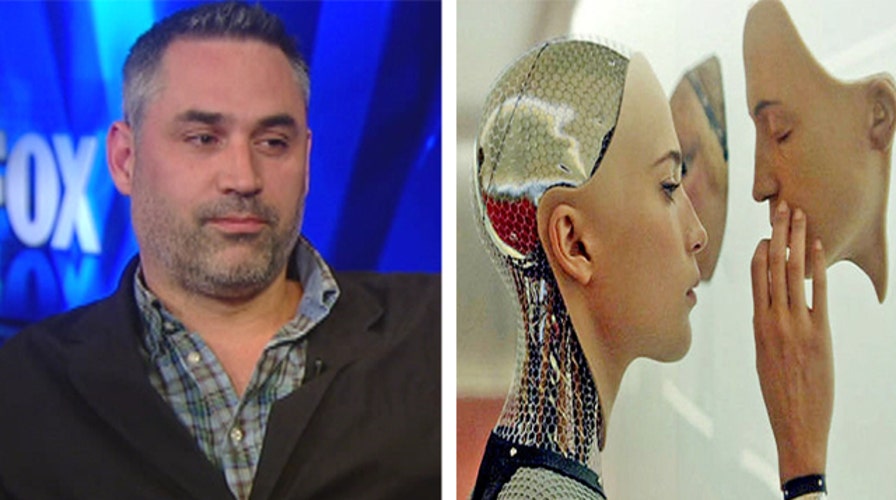It’s no easy task helming an Artificial Intelligence sci-fi flick but it’s worked out so far for writer-director Alex Garland. His indie “Ex Machina” has already banked over $12 million and expands to more theaters this week.
Garland joined us to talk about his directorial debut thriller which follows an Internet programmer sent to meet his boss at his isolated estate to test out a new form of Artificial Intelligence named Ava. Garland told FoxNews.com his interest in Artificial Intelligence evolved out of conversations with a friend. “His interest is neuroscience and questions about how we think tie into questions about how maybe one day machines could think,” he said. “And it was through those conversations I just started reading about it and listening to him and the more I read and the more I heard, the more interesting it got.”
When it comes to figuring out how strong Artificial Intelligence comes to exist in the movie, he did his homework. “Broadly, there are two schools of thought,” he told FoxNews.com. In one school of thought, machines are never going to be self-aware or have a human-style consciousness, whereas the other school argues to the contrary, according to Garland. “Given that it was a film about a machine becoming self-aware, I read the guys that said it was possible… and really I approached it as what I am, which is, I’m a layman who’s interested,” the writer-director added. “I read what I could and then tried to get the ideas in there."
Once Garland’s script was written he sent it to people who work in the area of Artificial Intelligence, whose books he’d read, to ensure that his representation of the technology was reasonable.
In the movie, Ava’s “brain” is created by the CEO of an Internet search engine company, offering some commentary on the issue of information sharing and gathering, which lends itself to a bigger discussion. “There’s a commentary and in the commentary a desire to be part of a broader conversation that we ought to be having and are having, which is, you could roughly say is about surveillance, a sense that we’re giving up a lot of ourselves to things that we don’t understand,” said Garland. “Those things understand a lot about us but we don’t understand much about them.”
While this topic encompasses government and government agencies, it also includes big tech companies, according to Garland. “That is effectively dramatized and represented within the film because Ava’s sentience comes partly out of the inputs that we’ve put into search engines,” he said. “There was a loose idea, and this probably doesn’t stand up to any scrutiny at all, but for what it’s worth, that if you were to look at everybody’s search engine inputs you’d get a kind of map and the map would not just tell you what they were thinking about but also how they were thinking because of the strange jumps that people make in their input.”
As for his thoughts on the future of Artificial Intelligence, Garland thinks that the technology has a lot to offer. “I feel positive about it - I think there are dangers built in and they are similar to the kind of dangers that you get in any breakthrough of science or technology,” he told FoxNews.com. “There’s a lot of parallels drawn in the film between nuclear power, and the creation of nuclear power, and the creation of strong Artificial Intelligence. “
While there is latent danger associated with Artificial Intelligence, Garland sees the positives outweighing the negatives. “It just means you’ve got to be careful and broadly speaking I think if we were able to create strong A.I.s I think it would probably be a good thing,” he said.
Click for more of our Foxnews.com Tech Take interview with Alex Garland. Find “Ex Machina” in theaters now.

